Cocoa butter is more than a simple ingredient—it is the backbone of the confectionery industry. In Palestine, where chocolate-based products, coatings, and creams are increasingly central to the food market, cocoa butter imports from Türkiye have become an essential part of industrial production.
Every confectionery manufacturer knows the difference a high-quality cocoa butter makes. It defines the snap of a chocolate bar, the gloss of a coating, the smoothness of a filling, and the melt-in-mouth sensation that consumers crave. But for factory owners and procurement managers in Palestine, securing a consistent, competitively priced, and technically compliant source of cocoa butter is far from easy.
Türkiye, with its established food ingredient infrastructure and strong export network, has emerged as a dependable origin for cocoa butter supply to the Palestinian market. And at MT Royal, we have seen first-hand how this route supports production efficiency, cost control, and ingredient reliability for confectionery manufacturers across the region.
Understanding Cocoa Butter in Industrial Production
Cocoa butter is a natural fat extracted from cocoa beans during the chocolate manufacturing process. It possesses a unique crystalline structure that gives chocolate its characteristic texture and sheen. Industrially, cocoa butter serves several crucial purposes:
- Texture and Structure: Determines hardness, snap, and melt profile.
- Flavor Release: Acts as a carrier for cocoa solids, enhancing sensory quality.
- Stability: Ensures uniform crystallization during tempering.
- Shelf Life: Improves oxidation resistance in finished products.
For confectionery manufacturers, these properties make cocoa butter indispensable. Substitutes like vegetable fats or cocoa butter equivalents (CBE) can reduce costs but often compromise mouthfeel or flavor authenticity.
That’s why consistent access to genuine, high-quality cocoa butter remains a top procurement priority—particularly in Palestine’s evolving chocolate and bakery sectors.
Why Türkiye Has Become a Key Source
Türkiye’s position as a cocoa butter supplier to Palestine is rooted in its robust food industry ecosystem. Over the past decade, Turkish ingredient processors and exporters have invested heavily in refining and blending facilities that meet international quality standards.
Key advantages of sourcing cocoa butter from Türkiye:
- Geographical proximity – Shorter lead times and reduced shipping costs.
- Strong trade logistics – Efficient port operations in Mersin and Istanbul, streamlined for food exports.
- Diverse supplier base – Access to both pure cocoa butter and tailored blends for confectionery use.
- Regulatory compliance – Turkish suppliers generally follow EU standards for food safety and traceability.
- Cultural and trade alignment – Longstanding commercial cooperation with Palestinian distributors and factories.
For production managers in Palestine, this proximity translates into lower freight costs, fewer delays, and greater control over delivery schedules—a critical advantage in a sector where production downtime can cost thousands per hour.
The Role of Cocoa Butter in Palestinian Confectionery Manufacturing
The confectionery industry in Palestine is undergoing rapid transformation. From small artisan workshops to industrial-scale plants producing chocolate bars, pralines, wafer coatings, and filled biscuits, local manufacturers are expanding capacity and quality standards.
Cocoa butter is used in nearly every sub-segment:
| Application | Function of Cocoa Butter | Impact on Product Quality |
|---|---|---|
| Chocolate Bars | Provides gloss, snap, and smooth melting | Defines consumer perception |
| Cream Fillings | Enhances mouthfeel, stabilizes texture | Prevents oil separation |
| Coatings & Enrobing | Ensures even flow and hardening | Reduces cracking |
| Compound Chocolates | Blends with CBE or CBS for cost control | Balances performance and price |
| Bakery & Biscuits | Adds flavor depth and shine to finishes | Improves shelf life |
Palestinian confectionery brands compete not just on taste but on consistency. For that, the quality of cocoa butter becomes a direct reflection of production discipline.
Common Procurement Pitfalls and How to Avoid Them
Importing cocoa butter from Türkiye—or any source—can be complex if not handled strategically. Based on our experience at MT Royal, we’ve seen factories encounter several recurring issues:
1. Overlooking Fat Composition Ratios
Cocoa butter has a precise balance of triglycerides (POP, POS, SOS). Deviations can disrupt tempering, causing fat bloom or unstable crystallization. Always request a detailed technical specification sheet.
2. Ignoring Temperature Sensitivity in Transit
Cocoa butter must remain below 25°C during transport. Improperly insulated shipments can result in partial melting and recrystallization, leading to texture instability.
3. Inconsistent Quality Across Batches
Not all suppliers maintain strict batch testing. Inconsistent melt points or flavor profiles can affect product uniformity. Trusted partners like MT Royal source only from verified Turkish and European processors.
4. Price-Driven Buying Without Long-Term Contracts
Spot purchasing may seem cost-effective but exposes factories to sudden price spikes. Contract-based supply arrangements secure stability and reduce administrative burden.
5. Neglecting Regulatory Documentation
Palestinian authorities require precise import documents and origin certificates. Missing or incomplete paperwork can delay customs clearance—sometimes by weeks.
When procurement managers understand these pitfalls, they not only protect production schedules but also strengthen the overall supply chain integrity.
Technical Parameters That Define Cocoa Butter Quality
To maintain consistent results in confectionery production, it’s essential to monitor the following technical parameters for each batch:
| Parameter | Ideal Range | Industrial Significance |
|---|---|---|
| Melting Point | 30–34°C | Controls mouthfeel and stability |
| Free Fatty Acids (FFA) | < 1% | High FFA indicates oxidation |
| Moisture | < 0.2% | Prevents microbial growth |
| Iodine Value | 33–42 | Reflects fat composition |
| Peroxide Value | < 2 meq/kg | Measures freshness |
| Color & Odor | Pale yellow, neutral aroma | Indicates purity |
Maintaining these parameters ensures that cocoa butter blends seamlessly into confectionery formulations, providing the desired texture and sensory properties.
MT Royal: Supporting the Palestinian Food Industry with Reliable Supply
At MT Royal, we supply manufacturing facilities across Palestine with a range of industrial cocoa-based ingredients, including cocoa butter, cocoa powder, and substitutes. We work directly with procurement teams and production supervisors to:
- Align cocoa butter grades with equipment capabilities (tempering machines, depositors, enrobing lines)
- Offer multiple sourcing options from Türkiye, Europe, and Asia for flexibility
- Ensure every batch meets international quality and safety standards
- Support documentation, customs clearance, and logistics coordination
We’ve seen factory managers benefit greatly from switching to structured supply models rather than fragmented sourcing. Predictability in ingredient availability leads to fewer stoppages, reduced waste, and smoother product rollout schedules.
Quality Comparison: Turkish Cocoa Butter vs. European Premiums
While Türkiye offers excellent value and logistical efficiency, European producers—particularly Spanish brands like Latamarko—set benchmarks in cocoa butter purity and consistency.
| Attribute | Turkish Cocoa Butter | Latamarko (Spain) |
|---|---|---|
| Origin Consistency | Multi-origin blends | Single-origin controlled |
| Color | Pale yellow | Uniform creamy hue |
| Crystal Stability | Good | Exceptional |
| Cost Efficiency | High | Moderate |
| Ideal Use | General confectionery | Premium chocolate and coatings |
Spanish engineering has long been respected in food processing, and Latamarko exemplifies that reputation through meticulous production control and traceability. Many large-scale factories choose to maintain dual sourcing—importing from Türkiye for everyday production and Latamarko for high-end product lines.
This approach balances economy with excellence—a practical model that Palestinian confectionery producers have increasingly adopted.
Logistics and Storage: Best Practices for Industrial Cocoa Butter
Transport Considerations
Cocoa butter should be shipped in temperature-stable containers, ideally between 18–25°C. Palletized cartons or drums must be sealed against humidity and sunlight.
Storage in Factories
Inside Palestinian manufacturing plants, proper storage is critical:
- Maintain ambient temperature below 25°C.
- Keep relative humidity under 60%.
- Use nitrogen flushing for long-term bulk storage.
- Apply the FIFO (First In, First Out) principle to preserve freshness.
Failure to follow these guidelines can cause rancidity, color change, or separation—all of which compromise product integrity.
Economic Insights: Price Dynamics and Supply Stability
Global cocoa butter prices have fluctuated significantly due to climate shifts in West Africa and rising global demand for premium chocolate. For Palestinian manufacturers, Türkiye offers an attractive middle ground between cost and quality.
Turkish suppliers often secure raw cocoa imports from Africa, refine them locally, and export finished cocoa butter at competitive prices. This integrated approach reduces exposure to international freight and brokerage costs.
At MT Royal, we help manufacturers structure annual procurement contracts that lock in stable pricing and delivery schedules. Such strategies protect factory budgets from unexpected commodity swings and allow long-term product planning.
Practical Tips for Factory Managers
From our experience supporting confectionery producers, a few best practices can optimize both quality and efficiency when importing cocoa butter from Türkiye:
- Test Small Batches Before Scaling Up – Evaluate melt profile and flavor compatibility with your recipe.
- Coordinate with Your Supplier’s Technical Team – Ensure the cocoa butter’s polymorphic behavior matches your tempering process.
- Audit Storage Conditions Regularly – Even minor heat exposure can alter crystal form.
- Standardize Documentation – Create templates for import paperwork to reduce administrative errors.
- Establish a Dual Supply Plan – Combine regional (Türkiye) and premium (Latamarko) sources for balance.
These measures protect production integrity and improve cost-per-unit efficiency—key metrics for every confectionery plant manager.
Frequently Asked Questions
1. Why is Türkiye a preferred origin for cocoa butter in Palestine?
Due to its proximity, reliable logistics, and strong food manufacturing base, Türkiye provides efficient and timely deliveries, ensuring lower shipping costs and shorter lead times.
2. How does cocoa butter quality affect chocolate production?
It determines gloss, snap, melting behavior, and overall mouthfeel—core attributes of chocolate quality.
3. Can factories mix cocoa butter from different sources?
Yes, but only after ensuring compatibility in melting point and crystal structure. Blending without testing may cause fat bloom.
4. What makes Latamarko cocoa butter stand out?
Its Spanish production standards ensure exceptional purity, consistent color, and uniform crystallization—ideal for premium confectionery lines.
5. How can MT Royal assist with cocoa butter imports?
MT Royal offers sourcing from Türkiye and Europe, manages logistics, provides full technical documentation, and ensures consistent quality for industrial use.
The Future of Cocoa Butter Imports in Palestinian Confectionery
As Palestine’s confectionery industry scales up, the need for reliable, high-quality raw materials grows in parallel. Cocoa butter imports from Türkiye will continue to play a central role in meeting this demand, balancing cost, accessibility, and quality.
At MT Royal, we see this partnership as more than trade—it’s a collaboration that strengthens local industry resilience. By integrating regional suppliers with global-quality brands like Latamarko, Palestinian manufacturers can achieve world-class standards while maintaining operational efficiency.
Cocoa butter may represent only a small fraction of total ingredient cost, but its influence on final product quality is profound. When sourced wisely and managed professionally, it becomes the quiet foundation of every successful chocolate creation.
And for factories aiming to compete on both flavor and reliability, the right supplier relationship isn’t optional—it’s the difference between surviving and thriving in a fast-evolving market.
latamarko alkalized cocoa powder lm60
cocoa powder for chocolate production-Best price
Food industry raw materials – list of products
Types of Gelatin from Turkish Manufacturer
Alkalized Cocoa Powder Bulk Supplier


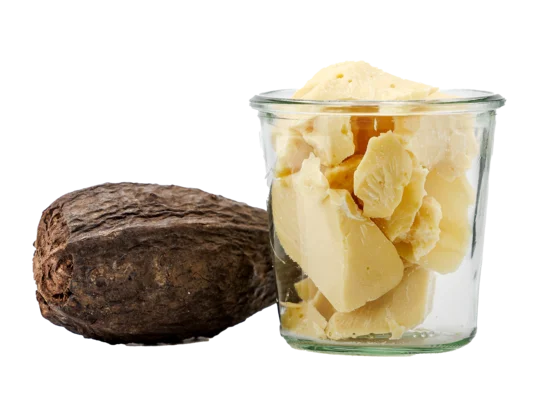
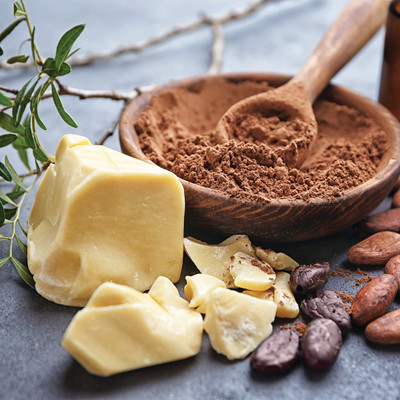
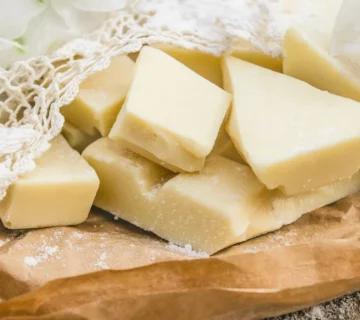
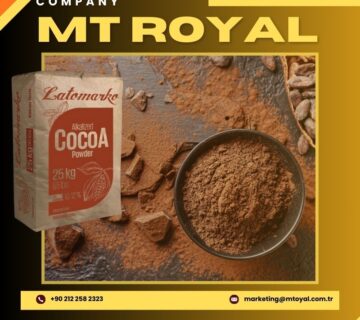
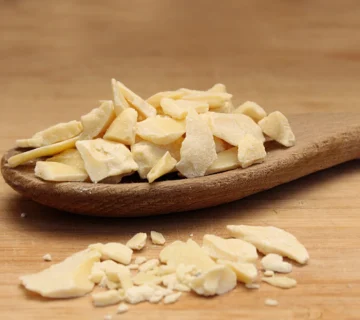
No comment